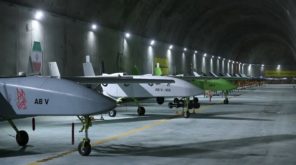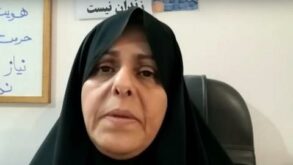Al-Monitor – In his first presser since the June 18 election, Iran’s President-elect Ebrahim Raisi announced that Tehran wants closer regional ties and that priority will be given to improving ties with Gulf Arab neighbors. After Iran fell out with Saudi Arabia in 2016, and the two have been engaged in talks hosted by Baghdad since April of this year.
In the days ahead, there may be many new challenges for Iran as the region is only getting more complicated. Ideally, Iran and Saudi Arabia would manage to restore ties before any new issues arise. And since Raisi has more clout in Iran’s Supreme National Security Council than his predecessor President Hassan Rouhani, he can play a decisive role.
Here are some of the factors that can negatively impact Iran’s ties in the region.
First, for the new government in Iran, its ongoing negotiations with the United States for the resumption of the Joint Comprehensive Plan of Action (JCPOA) are the most important matter at hand. Six rounds of talks have been held on the nuclear accord in Vienna since April and the deal could be done any day.
Saudi Arabia has consistently opposed the renewal of the JCPOA and has reservations over Iran’s nuclear program, though it has been more subdued about the matter ever since the Joe Biden administration took over in Washington.
Second, even as it tries to restore ties with Iran, Riyadh concluded an oil agreement with Islamabad just days ago, in what might be an attempt to reduce Tehran’s influence in that country. Starting this month, Pakistan will receive oil assistance worth $1.5 billion or more per year.
Having mended ties just months ago, Riyadh and Islamabad are getting back to normal and more Saudi investments are in the offing. Due to a logistics issue, a refinery that was to be built by the Saudis at Pakistan’s Gwadar port will now be built along with a petrochemical complex near Karachi.
Even though Iran has also been implementing a “neighbors first” policy and ties were upgraded with Pakistan ever since the Imran Khan administration took over, an increasing Saudi presence next door may become a future irritant.
Third, a fluid situation prevails in Afghanistan as Washington withdraws its forces. Just as the exodus of US troops began, the Afghan Taliban started occupying more land and Kabul faces unpredictable times in the days ahead. Any tussle between the Taliban and the Afghan government could plunge the country into civil war.
In the meantime, every country in the region has become part of a race to ensure their own interests and retain influence in the next setup. Where Kabul is concerned, Islamabad, Riyadh and Tehran may not share the same goals about the restructuring of the government there.
While Iran does have links with the Taliban, it would like the group to have a minimal role in the power-sharing arrangement and it openly supports the Afghan government. As Iranian Foreign Minister Mohammad Javad Zarif described in a 2019 interview with NDTV, “I think it would be impossible to have a future Afghanistan without any role for the Taliban. But we also believe that the Taliban does not have, should not have, a dominant role.”
Playing a mediatory role, Islamabad has been facilitating the Afghan peace process, but its terms with the government of President Ashraf Ghani get quite testy at times. Any future anarchy in Afghanistan could bring an influx of refugees to Pakistan and there may even be proxy warfare risks between Tehran and Riyadh if Kabul becomes destabilized. Any friction between the two rivals could put Islamabad in a very delicate position as its foreign policy is to balance both Iran and Saudi Arabia.
But how is Iran’s stance on Afghanistan different from that of Saudi Arabia?
Talking to Al-Monitor, Lukasz Przybyszewski, president of the MENA-focused Abhaseed Foundation, said that Terhan’s approach to Afghanistan is fundamentally different because of two factors.
“First, both countries are direct neighbors, so Iran’s efforts are concentrated on stabilizing the situation in Afghanistan for the longer term. In contrast to Saudi Arabia, Iran is by far much less isolated from the risks involving instability and degrading security in Afghanistan, so the authorities in Riyadh can afford to take more bold decisions.”
Discussing chances of instability in Afghanistan, Przybyszewski said, “It is now speculated that the relations between Iran and Afghanistan will alter not only because of the Taliban’s military advance, but also due to the efforts of Iran’s new president-elect, Ebrahim Raisi. President Raisi is supposed to have much better relations with the Sunnis in the eastern parts of Iran and to enjoy much better contacts with the Afghan community in Iran.”
According to Przybyszewski, “It seems also that Iran is playing the trans-confessional card much better than Saudi Arabia, so this advantage will allow Iran to entrench itself on the Western front,” meaning Iraq and Syria. “It remains yet unknown whether Tehran will be able to work out a balanced relationship with the Taliban, but the chances are not high. It might seem that both for the United States and Saudi Arabia, a restoration of an altered form of status quo with Iran from the 1990s, when the proxy war between the two Gulf neighbors was concentrated in Afghanistan and Pakistan, could become a possible form of diverting Tehran’s attention from direct kinetic escalations, to which Riyadh rather would not want to respond symmetrically.”
Nevertheless, if Iran has better chances of gaining influence in Afghanistan than Saudi Arabia, new problems can still begin. If the two countries had been able to reset ties beforehand, any divergences could be resolved better. But Tehran and Riyadh are still far from any breakthrough.
Discussing the Saudi-Iran reset with Al-Monitor, Roberto Neccia, deputy head of mission at the Italian Embassy in Islamabad, said, “Ever since Iran and Saudi Arabia cut their diplomatic relations, there have been rumors sometimes about low-level, mostly at technical level, contacts between representatives of the two countries. The leak about the meeting in Baghdad in April with Iraqi PM involved is a case in point. Other mostly indirect contacts, related to the Yemen war, have been going on often in Muscat. It is difficult at this moment, after the election of Raisi in Iran and the prospect of an eventual revival of JCPOA, to say if and when there will be a breakthrough.”
Moreover, “The possible dialogue between Riyadh and Tehran has been affected by the death of the Sultan of Oman, Qaboos, the only leader in the Persian Gulf to have had a long-established direct line of communication with [Supreme Leader Ayatollah Ali] Khamenei, which proved very useful in the past when it comes to mediation between Riyadh and Tehran. It remains to be seen if the new Sultan Haitham [bin Tariq Al Said] will keep the same access to the highest level of the Iranian nezam,” or system,
However, the conclusion of the JCPOA talks can make a difference.
According to Neccia, “A possible revival of JCPOA, I believe, could facilitate the process, despite having a hard-liner as president in Iran, since Riyadh needs Tehran to get out from the Yemen quagmire and US administration will have less leverage on Tehran. In case JCPOA will not be revived, things will be more complicated and it will be difficult to expect a breakthrough in the medium term. As one saying often quoted in Tehran says, you can eat soup with your enemy, though with a longer spoon.”
 Shabtabnews In this dark night, I have lost my way – Arise from a corner, oh you the star of guidance.
Shabtabnews In this dark night, I have lost my way – Arise from a corner, oh you the star of guidance.



